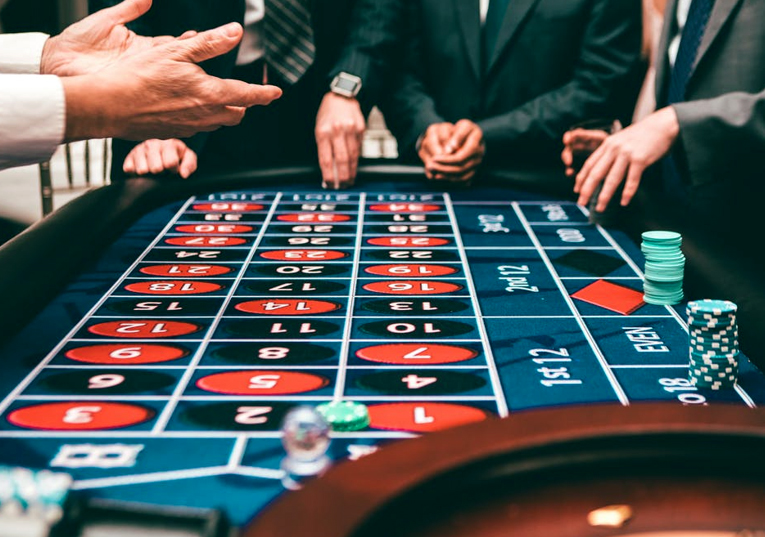
Casino games have long captured the fascination of individuals around the world, becoming an integral part of both fun and society. From the glimmering lights of Nevada to the captivating experience of internet gambling, these activities evoke thrill, uncertainty, and sometimes even a sense of nostalgia. เว็บตรง They are more than simply hobbies; they have woven themselves into the fabric of our lives, influencing everything from film and songs to fashion and writing.
The allure of casino games goes beyond the betting aspect, tapping into larger themes of serendipity, possibility, and psychology. As players convene around a card table or turn the roulette, they engage in an timeless ritual that resonates with our collective desire for thrill and unpredictability. This obsession has led to the rise of countless references in films, tracks, and electronic games, showcasing how intensely entrenched these pastimes are in mainstream culture. Whether it is the high-stakes tension of a legendary heist movie or the lively nightlife portrayed in recordings, casino games have carved out a substantial niche that reflects our bond with reward.
Cultural Importance of Gambling Games
Casino activities have played a key role in cultural contexts throughout the ages. Stemming from ancient civilizations, games of chance were often connected to rituals or gatherings. For instance, early iterations of gambling can be linked back to historic Chinese and the Romans, where die games and wagering on results were common pastimes. These activities not only served as leisure but also as means of connecting people, facilitating connections among people within communities.
As cultures evolved, so did the complexity and organization of casino games. The creation of formal casinos in the 17th century, particularly in the Italian region, marked a major shift in how games were perceived and organized. With specific spaces for gambling, the casino became a community center where people from various backgrounds gathered. This evolution contributed to the validation of the industry, transforming it from a mere pastime into an established industry that shaped economy and policy.
The impact of gambling games on popular culture cannot be understated. As they were brought into the limelight in literature and movies, games such as Texas Hold’em and 21 became symbols of risk, luck, and strategy. Famous characters and stories have emerged around these activities, illustrating societal attitudes towards luck, prosperity, and immorality. This fascination with casino activities has permeated various forms of entertainment, solidifying their status in the collective consciousness and linking them to wider cultural stories throughout the ages.
Depiction of Gambling Games in Entertainment
Gambling games have long been a popular theme in various forms of media, reflecting both the excitement and intricacies of the world of gambling. Movies such as Ocean’s 11 and Casino Royale portray figures who navigate dangerous scenarios, showcasing not only the appeal of the gambling environment but also the tactics and judgments that come with playing popular games like Texas Hold’em and blackjack. These films often dramatize the exhilaration of winning and the potential repercussions of losing, encapsulating the perils involved in gambling.
Television shows have also explored the universe of casino games, often integrating them into the plot as a backdrop for character arcs and tension. Shows like Vegas depict the lives of casino workers and customers, highlighting the vibrant, often disorderly energy of the casino floor. Reality shows featuring intense gambling competitions further emphasize the appeal of gambling activities, drawing viewers into the tension and strategy involved in each round. Through these portrayals, media not only entertains but also prompts conversations about fortune, expertise, and the nature of randomness.
Video games have increasingly integrated casino games into their development, allowing players to recreate the thrill of gambling without financial risk. Titles within the domain of online gaming often include online slot machines, online poker, and other popular casino games, creating an engaging environment that mirrors actual casino experiences. These digital representations make gambling activities accessible to a worldwide viewer base, appealing to both players who indulge and those who enjoy the rush of virtual experiences. As a consequence, the representation of casino games in entertainment continues to shape cultural attitudes and importance, highlighting their role in entertainment and culture.
Effect of Gambling Activities on Communities
Gambling activities have a significant impact on society, influencing multiple facets of societal norms and social behavior. They often function as a venue for social interaction, where people gather to enjoy a shared activity. Game nights with friends or visits to casinos become social activities that foster connections and create memories. This collective aspect boosts the fun value of gambling activities, making them a favored choice for celebrations and recreational pursuits.
Additionally, gambling activities have been portrayed in numerous films, television shows, and literature, shaping perceptions and attitudes towards gambling and betting. Icons like James Bond competing in baccarat or the intense poker scenes in films have cemented these games in the shared imagination. This representation often idealizes the lifestyle associated with gambling, attracting new players and impacting trends in both style and behavior. These portrayals can spark curiosity and lead to a deeper investigation of the nuances of gaming.
Nonetheless, there are also negative implications associated with the popularity of casino games. The temptation of quick monetary gain can lead to problem gambling and economic troubles for some individuals. Society must grapple with these consequences, promoting responsible gambling and education of the risks involved. Balancing the entertainment value of gambling activities with the risks is crucial to ensure that they continue to be a beneficial aspect of our cultural landscape.
